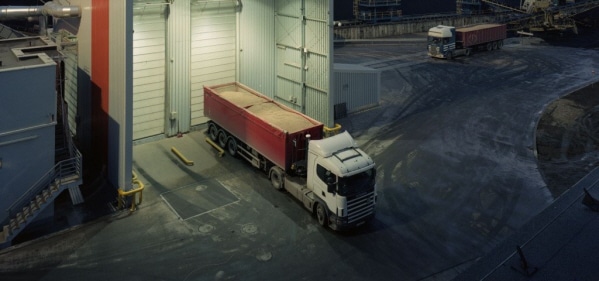
At the initiative of the Ministry of sustainability, ADEME and AUTF, a national voluntary commitment programme of shippers in favour of the reduction of greenhouse gas emissions from road freight transport was signed on 20 May 2015. Its name: " Fret21 ". A pilot phase involving 9 principals has started, and a national roll-out is planned for January 2016.
Road transport: what is the climate challenge?
A few months before COP21 in Paris, which will mobilize international players around the issue of global warming, France is deploying a new initiative to limit greenhouse gas emissions on its territory. Called " Fret21 ", the initiative was officially launched on May 20, 2015 at the World Business & Climate Summit by Ségolène Royal, Minister of Ecology, sustainability and Energy, Bruno Lechevin, President of ADEME (French Environment and Energy Management Agency) and Denis Choumert, President of AUTF (Freight Transport Users Association).
9 principals (Air Products, Carrefour, Coca Cola Entreprise, Ferrero, Fleury Michon, Hénaff, Orrion Chemicals Orgaform, Placoplatre and SCA) have undertaken to reduce the CO2 emissions generated by their activity over a period of 3 years. The Ministry of Ecology specifies in its press release that "the " FRET21 " approach is intended to encourage companies acting as contractors for transport companies to better integrate the impact of transport into their strategy of sustainability. ».
Faced with crucial climate issues, the initiative is all the more welcome as the transport sector accounts for 32% of final energy consumption and 36% of French CO2 emissions (2013 data). Road transport alone accounts for the bulk of these emissions (92%) and energy consumption (80%).
" Fret21 " is expected to give a breath of fresh air to the road transport sector, with a roll-out to all shippers s, of all sizes and activities, planned for January 2016. The objective is to reach 1,000 signatories by 2020 "and thus generate 0.4 million tonnes of CO2 savings ", the ministry stresses. An approach which complements the one already launched in 2008 "Objective CO2 - Transporters commit themselves".
Better transport thinking, less pollution
Freight transport companies must obviously contribute to reversing the upward trend in emissions from the transport sector (+19% between 1990 and 2004). But while these companies are encountering a number of difficulties (sacrificed margins, strong competition, fuel price instability), " Fret21 " enables clients to support transport companies in their environmental efforts, in order to facilitate the process around common objectives and an obligation of results.
Among the main actions of " Fret21 ", four major axes have been identified. First of all it will be a question of better managing the Filling Rate with an optimization of palletized loads, delivery conditions, a reduction of empty runs and the mutualized management of supplies. Then it will be necessary to better manage the Distance optimisation and avoid unnecessary kilometers with an optimization of the positioning of the sites, the allocation of production and customers ...
In the midst of the energy transition, it will also be necessary to review means of transport with a choice and optimisation of road vehicles, or even the use of alternative modes to road transport. Finally, a better consideration of information and CO2 performance will enable the most environmentally friendly shippers to be exploited. Tools will enable them to better identify the factors that influence their emissions.
According to the Ministry and on the basis of 1,000 signatories by 2020, " Fret21 " is expected to save a cumulative 1.4 million tons of CO2 over the period 2015-2025. The objective is to return to a level of greenhouse gas emissions in transport similar to that of 1990. However, even if all the actions announced in the "Freight 21″" package were to be respected, only 10% of the objective of reducing greenhouse gas emissions attributable to the transport sector would be achieved. " Fret21 " therefore sets the course, leaving it up to other modes of transport (marine, river, air, rail) to imitate this approach and take responsibility for reducing their own climate impact.


